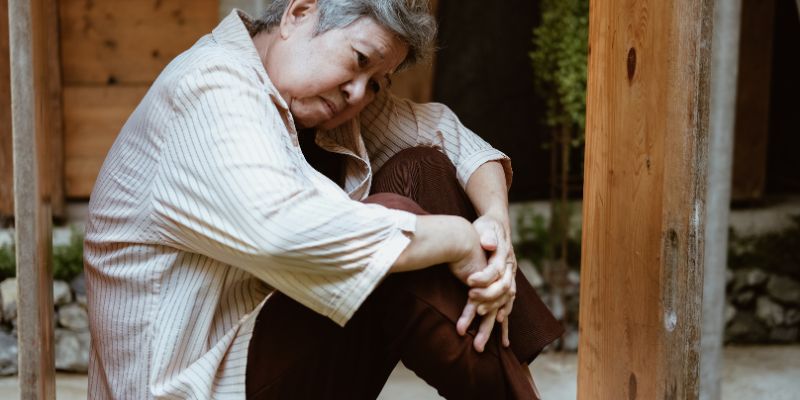
Have you heard about retirement stress? If you will be retiring anytime soon, you should start planning now. It is seen that people feel depressed after retirement because of loss of identity, social isolation, and financial problems.
The question is how to handle retirement depression. You can do it by fixing your routine, learning a new hobby, or owning a pet. Additionally, you can connect with the other retirees, stay active, and plan your finances for your mental well-being.
If you are still here and want to know more about retirement depression, continue to read; you will get an answer to all your queries!

What is Retirement Depression
People often plan on how they will spend their time after retirement. Mostly like to kill their time by cooking, painting, and enjoying freedom. But in all of this, we forget about retirement depression and anxiety.
In the beginning, it feels like a great relief. You don't have to go to the office and complete that big pile of files daily. But you feel depressed because there is no aim left in your life. Your days are not structured anymore. Therefore, people feel anxious and depressed after retirement, and that's what we call retirement depression.
Let us discuss the reasons for retirement depression and anxiety:
- Loss of Identity: Your job becomes your identity, and you lose your purpose and direction after retirement.
- Social Isolation: You lose your social connections after retirement, so you feel anxious.
- Finance: Another reason is the financial concerns. You don't have a source of income anymore, which worries you.
- Changed Routine: Change in routine is another reason for retirement depression and anxiety. It is because you don't have scheduled days anymore.
How to Handle Retirement Depression, Stress, and Anxiety?
When you retire, taking care of your mental health is important to feel relaxed and enjoy your post-retirement time. Early planning, having a new routine, having a pet, staying active, etc., can help you avoid stress after retirement.
Besides that, the tips mentioned below would help you to handle depression, stress, and anxiety:
Plan Early
You should plan your post-retirement life earlier. Decide what you will be doing after retirement. You should think about your new routine and how to make it productive. It is a very good way to save yourself from being anxious after retirement. You can learn a new hobby or even start a small business to keep busy.
Decide What You Enjoy
If you feel you need help after retirement, you should identify what you enjoy. Think of the things that make you feel good and give you joy. Once you decide what inspires you, you can do that to spend your time. It can be anything like gardening, cooking, or painting. This way, you can spend your free time well and be productive.
Eat Well
A healthy diet also helps you with stress, anxiety, and depression. You should add healthy meal options to your daily diet. You can also try new recipes yourself. In this way, you would productively spend your time and eat healthy food simultaneously.
Build a New Routine
Once you retire, your routine gets disturbed. You used to have a structured day. You used to wake up early, leave for the office, return, and complete the pending tasks. But after retirement, you are free.
Now, you should build a healthy routine to avoid depression and anxiety. Schedule your day when you should wake up, when to have the meal, and read some pages of your favorite book.
Find New Activities
In addition to what you enjoy, find some new activities. Take this post-retirement time to add new things to your routine. You can do what you couldn't because of your busy routine back then. You can:
- Join a senior sports league
- Do a part-time job to earn money
- Volunteer with local charity
- Do gardening
- Read new books
Be Friends with Other Retirees
You should connect with other retirees who are having a hard post-retirement time. You would be able to support each other. Spending some time together will uplift your mood and avoid anxiety and depression. You can connect with other retirees online if you want to stay home. You can also create a group online and talk to each other.
Get a Pet for Yourself
It is proven by science that having a pet improves your mental health. To handle your retirement anxiety and depression, you can get a pet for yourself. It can be a dog or a cat, whatever you like more. You can volunteer at an animal house or rescue organization if you don't want to own a pet. It's totally up to you what suits you more.
Stay Active
You used to stay active when you had to go to the office and complete your work on time. You still have to stay active after retirement. And that's up to you how you would do it. You can take part in sports and do volunteer work. You can also help your partner in the kitchen. All these activities will help you stay energized and mentally healthy.
Plan your Finances
You should plan your finances and budget. Remember that you are earning a different amount than you used to. So you have to be wise with your finances and expenditures. When you set your financial goals, you will not have to be anxious in the future. It is a great way to deal with post-retirement anxiety.
Seek Professional Help
Suppose nothing is working for you. If your depression is not going away, you should seek professional help. There is no shame in asking for help, and your mental health should always be your priority. For this, you can consult a psychologist. He can help you cope with the situation and professionally assist you.
Conclusion
Are you suffering from retirement stress? It is because of loss of identity, financial problems, social isolation, changed routine, and several other reasons. But don't worry; we are here to help you. You can cope with this anxiety by owning a pet, doing what you enjoy, building a new routine, and planning your finances. Hopefully, it all will help you handle the retirement depression.
-
Recommended Reading
 Find out about Lupus disease, its causes, and its symptoms. Learn the ins and outs of this disease and if it’s curable or not.
Find out about Lupus disease, its causes, and its symptoms. Learn the ins and outs of this disease and if it’s curable or not. Sleep Well: Discover the 12 Best Foods and Drinks to Have Before Bed
Sleep Well: Discover the 12 Best Foods and Drinks to Have Before Bed Supplementing Your Diet with Cholesterol-Lowering Foods
Supplementing Your Diet with Cholesterol-Lowering Foods How to Make the Most of Your Low Calorie Diet with Incredibly Filling Foods?
How to Make the Most of Your Low Calorie Diet with Incredibly Filling Foods?
